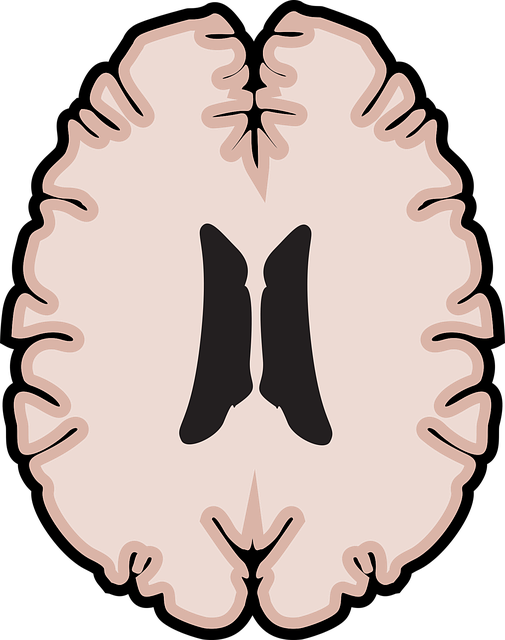In a world with rising stress and mental health challenges, Englewood Crisis Counseling Therapy (ECCT) offers vital mental wellness coaching services. ECCT's personalized programs focus on resilience, self-care, and effective coping strategies to manage stress, improve mood, and combat stigma. Their innovative Community Outreach Program combines professional therapy with community engagement, succeeding in supporting underserved communities with holistic mental health solutions. Effective coaching programs should include comprehensive assessments, evidence-based approaches like CBT and mindfulness, structured goals, regular assessments, tailored interventions, and risk assessments for early crisis identification. By adopting these best practices, programs can foster progress, enhance client engagement, and improve overall mental wellness outcomes similar to ECCT's success.
Mental wellness coaching programs are gaining prominence as a vital resource in modern society, addressing growing mental health challenges. This article explores the development of such programs, from understanding their significance to implementing successful interventions. We delve into key components, strategies, and best practices, drawing insights from a case study of Englewood Crisis Counseling Therapy—a community-supported initiative that underscores the impact of tailored coaching. By examining these aspects, we aim to enhance mental wellness support through evidence-based coaching programs.
- Understanding Mental Wellness Coaching: A Growing Need in Modern Society
- Englewood Crisis Counseling Therapy: A Case Study on Community Support
- Designing Effective Coaching Programs: Key Components and Strategies
- Implementing and Evaluating Success: Best Practices for Coaching Interventions
Understanding Mental Wellness Coaching: A Growing Need in Modern Society

In today’s fast-paced and often stressful world, mental wellness coaching has emerged as a crucial resource to support individuals in navigating their emotional well-being. This growing field is particularly significant as modern society grapples with rising rates of mental health issues, including anxiety, depression, and burnout. Mental wellness coaches play a vital role in promoting resilience, self-care, and coping strategies, helping folks manage stress and improve overall mental health. They offer personalized guidance, enabling individuals to develop sustainable practices for enhancing mood management and preventing mental illness stigma reduction efforts.
Englewood Crisis Counseling Therapy, for instance, has recognized the demand for such coaching programs and adapted their services accordingly. By incorporating burnout prevention strategies for healthcare providers, they cater to a specific demographic at risk of occupational stress. These initiatives showcase how mental wellness coaching can be tailored to diverse needs, making it accessible and effective for various populations, from individuals seeking personal growth to professionals in high-pressure fields.
Englewood Crisis Counseling Therapy: A Case Study on Community Support

Englewood Crisis Counseling Therapy (ECCT) serves as a compelling case study highlighting the transformative power of community support in mental wellness coaching programs. This initiative focuses on providing accessible and affordable counseling services to residents within underserved communities, addressing pressing issues like depression prevention and anxiety relief. Through a comprehensive Community Outreach Program Implementation, ECCT has successfully carved out a niche, fostering a safe space for individuals to confront and overcome personal challenges.
The program’s success lies in its ability to intertwine professional therapy with the warmth of community engagement. By integrating support groups, educational workshops, and peer mentoring, ECCT creates a holistic environment that empowers individuals to take charge of their mental health. This collaborative approach not only alleviates symptoms of common mental health disorders but also builds resilience, fostering a sense of belonging among participants. The positive impact extends beyond individual transformation, as the program contributes to a more robust and supportive community ecosystem.
Designing Effective Coaching Programs: Key Components and Strategies

Effective coaching programs for mental wellness should be meticulously designed to cater to diverse individual needs. A robust program incorporates several key components that facilitate holistic improvement in mental health and well-being. Firstly, a comprehensive assessment process is vital; it helps coaches understand clients’ unique challenges, goals, and triggers for stress or anxiety. This involves gathering information about the client’s background, current circumstances, and specific areas of concern, akin to the meticulous evaluation conducted by Englewood Crisis Counseling Therapy professionals.
Secondly, tailored strategies for mood management should be a central focus. Mental health education programs design should include techniques such as cognitive-behavioral therapy (CBT), mindfulness practices, stress reduction methods, and positive psychology interventions. These tools empower clients with self-regulation skills to manage their emotions effectively. By combining these evidence-based approaches, coaches can create an engaging environment that fosters growth, much like the supportive setting provided by Englewood Crisis Counseling Therapy, enabling individuals to navigate their mental wellness journeys successfully.
Implementing and Evaluating Success: Best Practices for Coaching Interventions

Implementing and evaluating success is a crucial aspect of developing effective mental wellness coaching programs. To ensure positive outcomes, coaches should adopt best practices that incorporate structured goals, regular assessments, and data-driven decision-making. Regularly scheduled sessions with clear objectives allow for consistent progress tracking and adjustment as needed.
Englewood Crisis Counseling Therapy highlights the importance of tailored interventions, aligning coaching strategies with individual client needs. Conflict Resolution Techniques and Mental Wellness Journaling Exercise Guidance can be integrated to empower clients with coping mechanisms and self-awareness tools. Regular risk assessments using validated tools, such as those included in the Risk Assessment for Mental Health Professionals toolkit, are essential to identify potential crises early on. By combining these practices, coaches can foster meaningful progress, enhance client engagement, and ultimately contribute to improved mental wellness outcomes.
Mental wellness coaching programs are emerging as a powerful tool in modern society, addressing the growing need for mental health support. As demonstrated by the case study of Englewood Crisis Counseling Therapy, community-based initiatives can significantly impact individuals’ lives. By incorporating key components like tailored goals, evidence-based techniques, and ongoing evaluation, coaches can design effective programs that foster resilience and well-being. Best practices, as highlighted in this article, ensure successful coaching interventions, ultimately revolutionizing mental health support and enhancing the lives of those seeking guidance.














